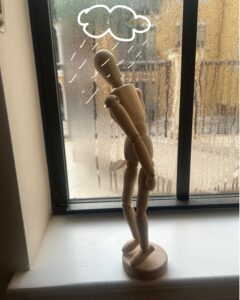
Whether you landed on this page because you are seeking depression therapy in Florida and New York or anywhere else, but unsure on where to start, these tips can help you support recovery.
“I don’t have the energy to do anything.”
If this feels familiar, you’re not alone. As a therapist offering depression therapy in Florida and New York, I hear this phrase more often than any other. When you’re struggling with depression, even minor tasks can feel overwhelming.
You may have heard that staying active or connected helps—but where do you begin when energy is low and motivation is nowhere in sight?
Here’s one of the most hopeful truths I’ve witnessed in my practice: action often precedes motivation. That means we don’t wait to feel better to start—we start small, and then things slowly begin to shift.
Hobbies aren’t a cure for depression. But they can offer tiny, manageable footholds that re-engage the brain and body. Even five minutes of creativity, connection, or movement can be a quiet but powerful act of healing.
Why Hobbies Can Help During Depression
Whether you’re seeking depression support in Naples, Florida or coping with burnout in Brooklyn, these small practices offer:
-
A gentle structure for your day
-
Moments of calm or accomplishment
-
Connection to creativity and self
-
A shift in attention—away from intrusive thoughts
-
Small doses of choice, control, and pleasure
You don’t need to feel inspired. You don’t need to “do it well.” You just need to start.
1. Coloring or Sketching
No words needed. Just doodle, scribble, or trace a mandala. Even when living with depression in urban New York or quieter parts of Florida, this quiet creative act can anchor your attention and offer a spark of calm.
2. Journaling
Forget grammar or structure. Write one line: “I feel heavy.” “Today was hard.” Or list three sensory details. Journaling helps reintroduce clarity and meaning when depression clouds everything.
3. Cooking Something Simple
Making toast counts. Soup counts. In my work with clients in both Florida and NYC, cooking often becomes a grounding ritual. Smelling, stirring, tasting—it’s all sensory care, and a reminder: you matter.
4. Working with Clay or Sculpting
Clay resists and yields—like emotions. Shape it, press it, mold it. No skill needed. Art therapy studies suggest it can improve mood and reduce rumination. It’s less about art and more about presence.
5. Indoor Gardening
From apartments in Queens to homes in Fort Myers, nurturing even a single plant helps. Watering, noticing a sprout—it reconnects you with rhythm and life.
6. Listening to or Making Music
You don’t have to perform. Just hum, tap, or sing softly. Music stimulates emotion without demanding words—and humming can activate the vagus nerve, helping calm the nervous system.
7. Puzzles and Brain Games
Word searches, crosswords, jigsaws—small cognitive challenges can slow racing thoughts and offer achievable wins, even on low days.
8. Joining a Group (Even Online)
You don’t have to talk much—just be present. Whether it’s a Zoom art group in NYC or a casual coffee circle in Florida, connection matters. Social rhythm reduces isolation and adds shape to your week.
9. Spending Time in Nature
Stand in the sun. Watch the wind move a tree. Research consistently shows that nature lowers stress hormones. Whether it’s a New York park or a Florida garden, find a nearby spot and return to it often.
10. Taking One Daily Photo
Look for light on the wall. A chipped mug. A sleeping pet. One photo a day helps shift your attention outward—and leaves a visual record of resilience.
Coping Reminder: Action Precedes Motivation
-
You don’t need to feel ready—just start.
-
Lower the bar: 3 minutes is enough.
-
Let stillness or motion guide you.
-
This isn’t about performance. It’s about presence.
-
Celebrate showing up.
Final Thoughts from a Florida and New York Therapist
Whether you’re seeking depression therapy in Florida or New York, remember this: hobbies aren’t a fix, but they are invitations. Gentle, low-pressure ways to return to yourself. Read about individual therapy with me here
Even when you feel stuck, every time you engage—however briefly—you’re practicing resilience.